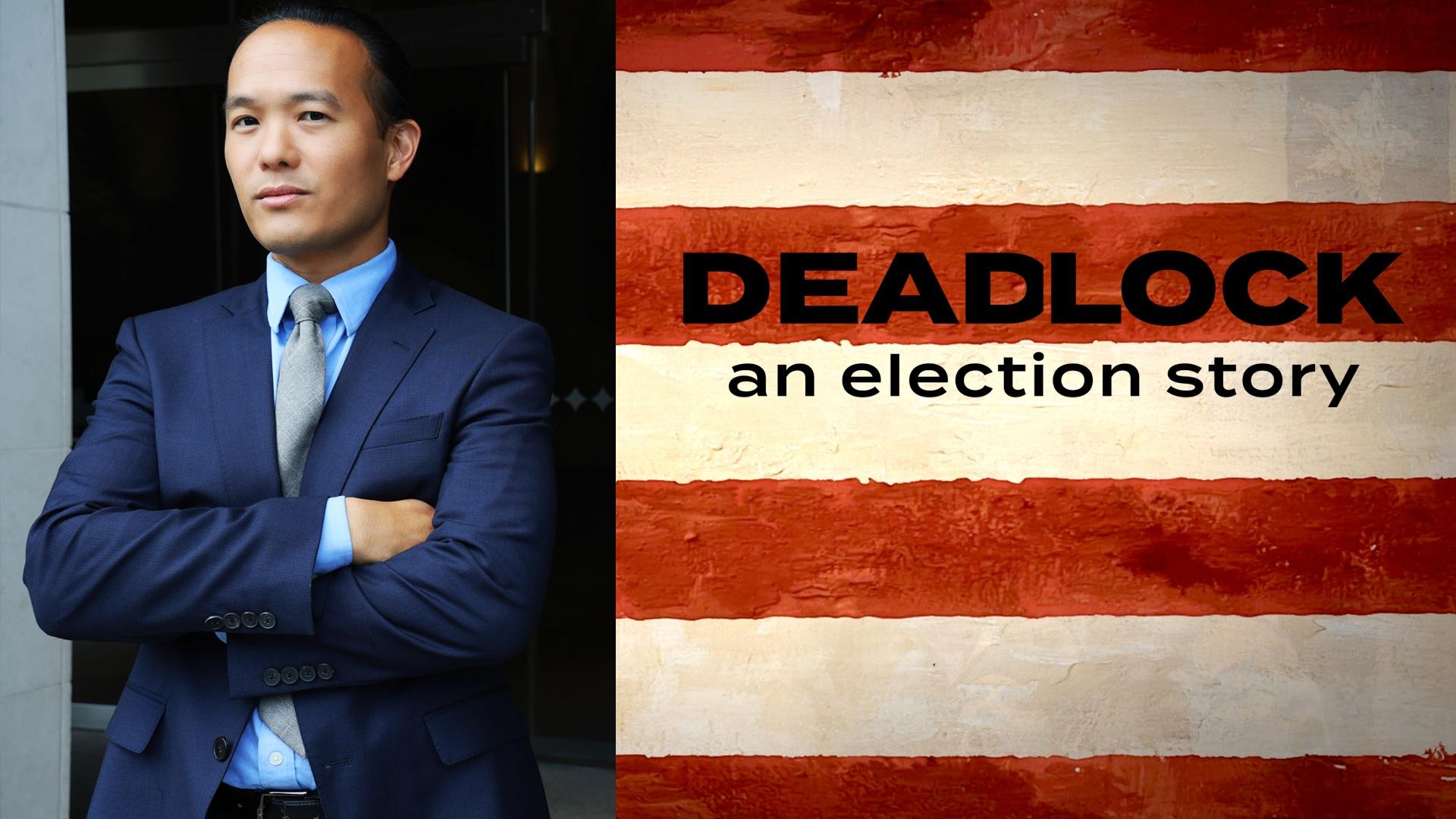As Moderator of Groundbreaking PBS Series, Professor Tang Encourages Civility

By Carla Meyer
In an era of extreme division, Professor Aaron Tang has found a national – and creative – platform to encourage civil discourse.
Tang serves as moderator for Breaking the Deadlock, an occasional PBS series that gathers current and former public officials from both sides of the aisle, along with prominent journalists and think tank representatives, to confront fictional scenarios rooted in the current political landscape.
Drawn from the 1990s Ethics in America televised panel discussions hosted by one-time CBS News president Fred Friendly, Breaking the Deadlock aims to “foster and model civic dialogue” and show “how to talk with people we often disagree with about the hard dilemmas, the hard choices that are facing people in this country,” Tang said.
Two of five planned one-hour episodes already have aired, and featured panelists including former Republican New Jersey Gov. Chris Christie and Democratic Montana Sen. Jon Tester, and 60 Minutes correspondent Lesley Stahl. A third episode will air Oct. 21.
The series premiered in September 2024 with a hypothetical involving a social media-fueled Election Day crisis. The episode was introduced by ideologically divergent Supreme Court Justices Sonia Sotomayor (for whom Tang once clerked) and Amy Coney Barrett, who spoke of the power of community engagement.
Assigned fictional identities aligned with their real-life roles, the panel’s luminaries make good-natured jokes acknowledging the differences in the room. But they also present sincere, informed responses to Tang’s prompts. The series differs from the usual right v. left cable news face-offs aimed at creating fireworks. Such setups momentarily satisfy partisan viewers but are damaging in the long term, Tang said.
“Most Americans are not trying to ‘own’ the other side. I think Americans are genuinely trying to understand difficult issues and do the best they can.”
The second episode dropped in May and weighed the limits of presidential powers. It begins with a pretend president slashing an environmentally friendly farm-subsidy program already funded by Congress.
Although obviously inspired by President Donald Trump’s flurry of executive orders upon re-taking office in early 2025, this subject matter also fits the program’s ethos of not being so topical that the moment passes before the episode airs.
Also, “these are not new questions” about presidential powers, Tang said. People also called out Trump in his first term, and Presidents Joe Biden and Barack Obama, for potential overreach.
A constitutional law specialist who drew widespread attention for his 2023 book Supreme Hubris: How Overconfidence is Destroying the Court—and How We Can Fix It, Tang won the show’s moderator role after several law professors auditioned. (Ethics in America also was moderated by law professors and featured similarly Socratic Method-style questioning.)
GBH, the prolific Boston public media outfit that produces the show for PBS, specifically sought earlier-career academics who were “not immediately thought of as too far left or too far right,” Tang said. “They wanted somebody who could be credible no matter their political views. I sort of fall into that lane.”
Although the series is guaranteed at least two more episodes, its future, like that of most public programming, grew cloudier in July when Trump signed a law revoking the Corporation for Public Broadcasting’s funding.
But as Tang pointed out, PBS had long persisted under the shadow of threatened cuts—during Trump’s first term and even going back to Ronald Reagan’s vow to pull the plug in the 1980s.
“I think PBS very bravely viewed this program as one of its main responses to that threat,” Tang said of Breaking the Deadlock. “To say, ‘Hey, you can pull our dollars; we are still going to do the kind of independent, evenhanded, thoughtful programming that you won’t see on cable news.’”
Tang has found reasons for optimism throughout the process of making the program.
“Watching the panelists on this show, thought leaders who usually disagree with each other, really engage … has convinced me that, yes, there still is reason for hope,” he said. “We disagree, but in our better moments, we can do so in a way that is productive, and constructive.”
